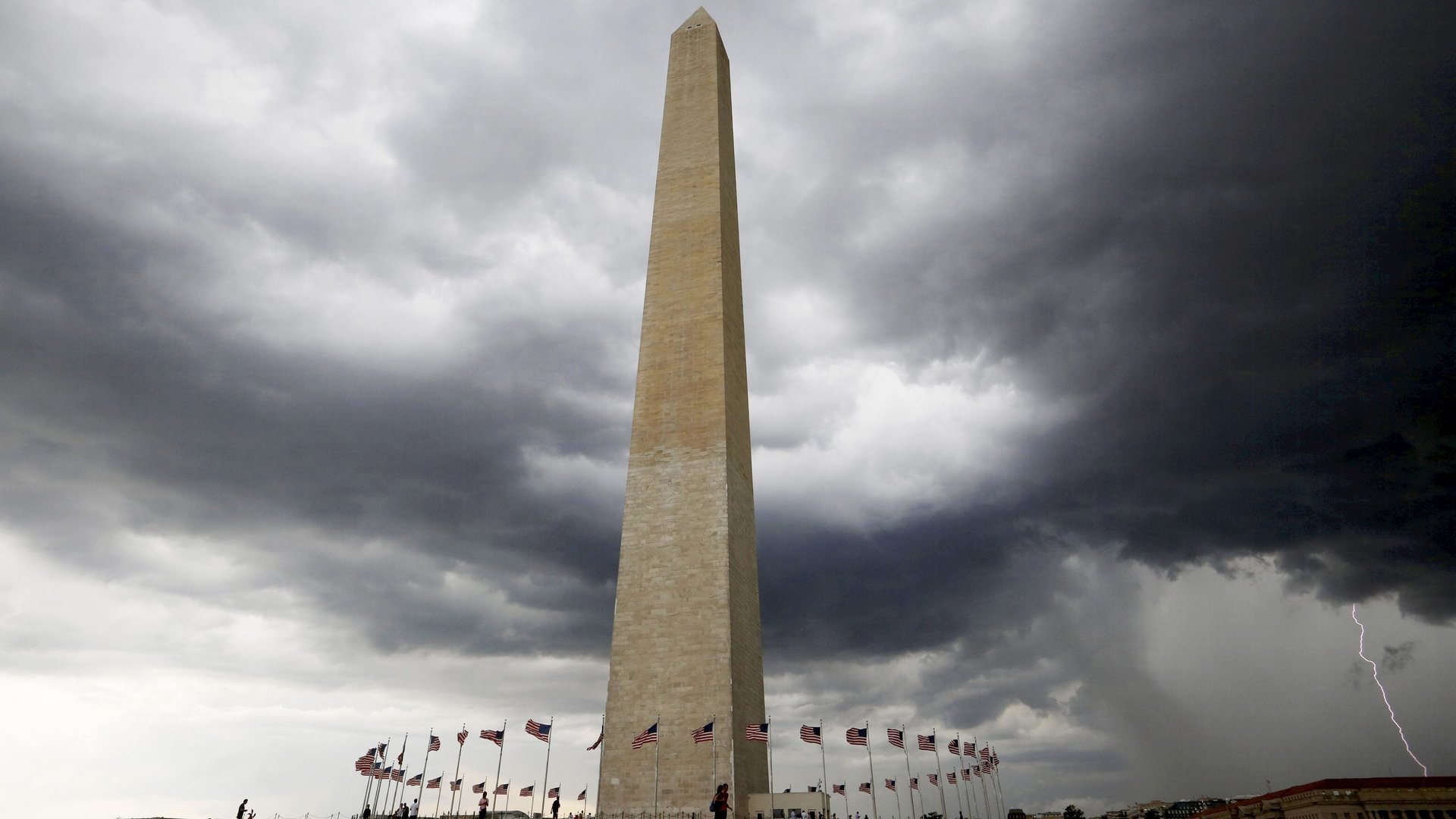Welcome to hell month in Washington, DC
Both houses of the US Congress are back in session today after a truncated summer break. They and the White House have until the end of September—during which (pdf) the House is in session for just 12 days and the Senate for 18—to pass multiple bills and amendments, or risk tanking the US stock markets, shutting down the government, and depriving hundreds of thousands of people devastated by Hurricane Harvey of the aid they need to rebuild.


Both houses of the US Congress are back in session today after a truncated summer break. They and the White House have until the end of September—during which (pdf) the House is in session for just 12 days and the Senate for 18—to pass multiple bills and amendments, or risk tanking the US stock markets, shutting down the government, and depriving hundreds of thousands of people devastated by Hurricane Harvey of the aid they need to rebuild.
The list of things the US government absolutely needs to get done in the coming weeks would be ambitious with a well-functioning Congress and a White House experienced at passing legislation. Neither is true now, however.
The Republican party, which holds a majority in both houses of Congress, is so divided that it could not pass a bill to repeal Obamacare earlier this year, even though most Republicans ran on that pledge for years. Relations between president Donald Trump and Senate majority leader Mitch McConnell are so poor that Trump has taken to harassing him on Twitter, while McConnell reportedly tunes out (paywall) during phone calls as Trump chatters about current events. Relations between the White House and other Republicans in Congress are so damaged that they’ve taken to openly criticizing Trump’s decision to pardon Arizona sheriff Joe Arpaio, and publicly wondering if he’s damaging the party.
The Democrats, who hold 48 of the 100 seats in the Senate, meanwhile, have vowed to fight many items on the Republican agenda “tooth and nail,” while those in the House have introduced impeachment proceedings. Multiple Congressional committees as well as the FBI are investigating Russia’s meddling in the last election and suspicions of the Trump campaign’s collusion in it.
Here’s what needs to get done:
Hurricane Harvey relief: The Trump administration has proposed a $7.85 billion immediate relief package for the communities hit by Hurricane Harvey. At least 440,000 Texans (paywall) have applied for aid from the federal disaster agency, FEMA.
Raise the debt ceiling: Unless Congress raises the level of debt the US Treasury can issue, the US risks defaulting on outstanding debt payments. If that happened, its sovereign credit rating would drop, foreign buyers of US debt could lose faith in its ability to repay, and markets would be thrown into turmoil.
Steve Mnuchin, the US Treasury Secretary, has proposed tying hurricane relief and the debt ceiling into one bill, but already some Republicans are balking at that idea.
Pass a spending bill: Without a bill to fund the US government, it could forced to rely on stop-gap funding or shut down. Hundreds of amendments could be hard-fought, including demands to strip funding for the administration’s proposed travel ban on Muslim-majority countries and the Department of Justice’s controversial decision to make it easier to seize assets from criminal suspects. House speaker Paul Ryan has already said a bill is unlikely to pass.
Renew the National Flood Insurance Program and a health insurance scheme for poor children: The government flood program is responsible for most flood insurance in the US, and expires at the end of the month, as does another program that gives health insurance to poor Americans under 19. Republicans were pushing for a major overhaul of the flood program, but that may be tricky now.
Address DACA: US attorney general Jeff Sessions has just announced that the Trump White House will suspend the Deferred Action for Childhood Arrivals (DACA) program instituted by president Barack Obama. DACA prevents some 800,000 “Dreamers”—people who were brought to the US illegally as children—from being deported, but they have to reapply every two years. Ending DACA puts pressure on Congress to pass a law to let them stay permanently—something Trump himself seems to want. Though DACA will remain operative for another six months, the politically-charged issue could become part of the horse-trading around budgeting and the debt ceiling.
Tax reform: After the failure of Trump’s health-care law, the White House seized on tax reform as its big legislative goal for this fall. Trump is meeting lawmakers and officials today on the issue. Given the pile-up of other things that need to get done first, there’s little confidence in Washington that it will happen.